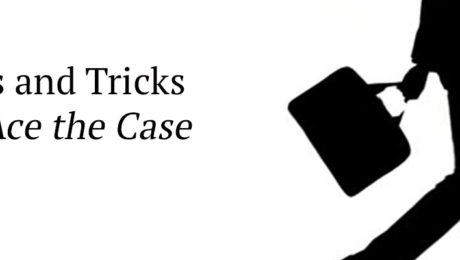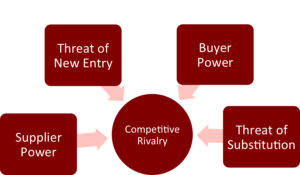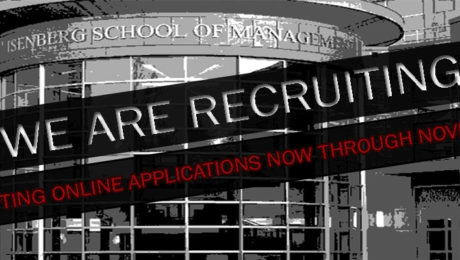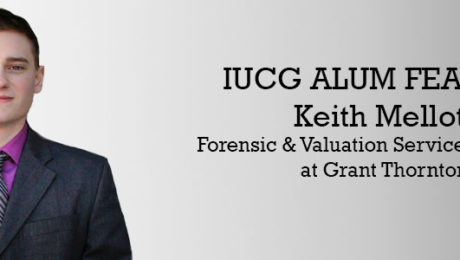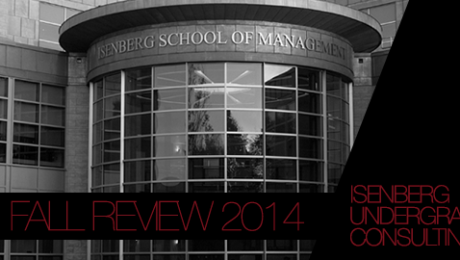Tips and Tricks to Ace the Case
Thank you to everyone from the UMass community who applied to join IUCG for the Spring semester. For those of you interviewing this weekend, we have some quick tips for the case interview. Below you will find a selection of popular frameworks used to solve an array of cases, as well as links to some helpful resources. Study up, and good luck!
Profitability Framework
The profitability framework is considered one of the most popular frameworks, and is used when addressing a company that has issues with their bottom line.
Remember: Profit = Revenue – Costs
In a more holistic view: E(P=R-C)M, where E=economic conditions, P=profit, R=revenue, C=costs, M=market conditions
Revenue includes price per unit and number of units sold. Types of costs includes Fixed Costs (overhead and insurance) and Variable Costs (new machinery, packaging, raw materials, cost per unit, number of units, etc.)
Economic Conditions to keep in mind:
• Unemployment
• Strength of the Dollar
• Interest Rates
• Consumer Spending
Market Trends
• What are three year trends for this industry?
Note: Revenue can be further broken down by demographic, location, product line, etc.
Porter’s Five Forces
Are you trying to figure out where a company has room for growth? Are you looking into the company’s overall strategy regarding the creation of a new product? These are just two potential situations where Porter’s Five Forces will come in handy. Use this framework for a high level view of what your company’s strategy should be.
Supplier Power
• Number of suppliers
• Size of supplies
• Differentiation of inputs
• Your ability to substitute
• Switching costs
Threat of New Entry
• Time and cost of entry
• Specialist knowledge
• Economies of scale
• Cost advantages
• Technology protection
• Barriers to entry
Competitive Rivalry
• Number of competitors
• Quality difference
• Switching costs
• Customer loyalty
Buyer Power
• Number of customers
• Price sensitivity
• Size of each order
• Differences between competitors
• Bargaining leverage
Threat of Substitute
• Substitute performance
• Cost of change
IUCG’s 8 Case Commandments
- Pay attention to what the question asks
- Take notes
- Verify and ask clarifying questions
- Think before you speak
- Work the numbers
- Be coachable
- Close and summarize
- Don’t forget the original question
Below you will find some useful links relating to case interviews and how to prepare for them.
• McKinsey Interview Advice: http://www.mckinsey.com/careers/join_us/interview_prep
• Case Interview Prep from a former McKinsey Interviewer: http://www.caseinterview.com/case-interview-preparation
• BCG Interview Advice: http://careers.bcg.com/join/practice_cases.aspx
Feel free to do your own research, and good luck!
- Published in Publication
Join IUCG: Who We Are and What We Do
It’s the most wonderful time of the year—IUCG is recruiting Junior Analysts for the upcoming spring semester! IUCG is looking for creative and motivated students who are interested in getting real-world, hands-on project experience. Our members are intellectually curious and strive for excellence in all they do. Interested? Here’s a glance at who we are and what we do.
Who we are
IUCG was founded on the values: collaborate, solve, accelerate. We incorporate these values into every facet of the organization, from outside of the group on projects to within club meetings in development workshops. IUCG has fostered a culture of mentorship, where every member can learn from each other, and every member has something unique to offer the group. We constantly push to grow and develop both our members and the group as a whole. Every semester we strive to improve and innovate so that we can provide our clients with quality service and quality recommendations.
What we do
Currently in its fourth operational semester, IUCG has worked with a number of diverse organizations. Our members have provided IT solutions for small restaurants, restructuring for on-campus RSOs, and process improvement recommendations for UMass offices. These pro-bono consulting engagements provide benefits for both IUCG members and IUCG clients; giving members the chance to add value to local organizations, and clients the opportunity to receive free assistance to improve their operations.
Within the organization, we focus on developing our members as individuals. Our weekly develop workshops are a platform for students to refine both their hard and soft skills. This semester we held a small internal case competition, taught the basics of process mapping in Visio, covered the ins and outs of LinkedIn, just to name a few. IUCG is an organization that values intellectual curiosity and the desire to learn. The development workshops complement that desire by providing our members with the opportunity to learn new skills outside of the classroom.
Join IUCG
Do you have a propensity for creative thinking and problem solving? Do you want the opportunity to add value to both the Isenberg and Amherst communities?
IUCG is accepting applications from now until November 15 at 5 p.m.
Apply online: isenbergconsulting.org/membership.
- Published in Publication
Alum Feature: Keith Mellott
Alum Feature: Keith Mellott, Class of 2015
Q & A with Forensic & Valuation Services Associate at Grant Thornton LLP
Why were you drawn to consulting?
I have never thrived in consistent, predictable environments. I love dynamic situations that keep me “on my toes” and force me to constantly learn new skills. Consulting is a perfect fit for somebody like me; it provides the opportunity to work within drastically different industries and acquire skills that I never would have in a more controlled environment.
What are three words to describe yourself and how did those characteristics contribute to your success in finding a job?
Curious, energetic, and motivated. Consultants are a different breed. It takes one to know one. The hours can be demanding and the intellectual challenges strenuous. During the job hunt, it is critical to convey a genuine desire to learn and a willingness to work.
Why did you choose to start your career at Grant Thornton?
Grant Thornton is an exceptional company. Their reputation speaks for itself. The great thing about starting a career at GT is the options you have. There is plenty of room for internal upward mobility, but GT will also provide you with the technical skills and the credibility to pursue advanced degrees at top schools.
Can you tell us about your role in Forensic & Valuation Services?
I work within the Forensic, Investigate, and Dispute Resolution Services department. Our department offers a variety of services. On a basic level, we investigate cases of financial fraud and provide expert financial and economic analysis during the litigation process. It involves a lot of data analytics, economic valuation, and forensic accounting.
What types of projects are you working on?
While I can’t speak too much about specifics, I can say that I am working on three very different projects! That’s my favorite part about my job; I am not restricted to one task or function.
What has been the biggest challenge for you while at GT?
My biggest challenge has not been related to GT itself. The transition from a college lifestyle to a working lifestyle should not be taken lightly. My daily routine requires more discipline and structure than it did in college. I certainly did not wake up at 6 in the morning during the school year! I have slowly adapted to the point where I am now accustomed to sometimes having to work 12-14 hours in a day and still accomplishing things outside the office, such as going to the gym or finding time for hobbies/interests.
How do you feel IUCG helped prepare you for work at GT?
The client-consultant relationship is at the core of every consulting firm’s success. IUCG taught me how to foster these relationships and maintain them throughout the course of an engagement. The hands-on experience with real life projects is irreplaceable.
What advice do you have for students interested in consulting? What do you wish you had known?
Consulting is hyper-competitive. You need to approach your career goals the way professional athletes approach theirs. You should have objectives every day that you strive to accomplish. Personally, I make a 5-year plan, a 3-year plan, a 1-year plan, a monthly plan, a weekly plan and a daily plan. You need to have some sort of vision for your future (even if it’s a rough outline) and you need to constantly monitor your progress towards your goals.
Final thoughts?
Learn how to use all the software you can! I cannot stress that enough. If you are masterful at Excel or programs like Stata, you are going to have an advantage over the competition. I would also advise learning at least one computer programming language. I started with R, which focuses on statistical and data analysis. Figure out what kind of consulting you want to do and research which programming languages will be most helpful for that type of work. Finally, the last piece of advice I can offer for undergraduates hoping to one day work in consulting is to forge as many professional relationships as possible in all kinds of industries. You never know who you might need to call upon for information or a favor!
- Published in Publication
Chapter Two of IUCG
Welcome back UMass! After a summer hiatus, IUCG is back in its fourth operational semester. With a fresh group of analysts and three new faces on the E-Team, we’re ready to take on Fall 2015. This semester marks the beginning of a new chapter for IUCG. The founding members have graduated, and the mentees have become the mentors. We are moving with a purpose into unchartered territory and it is invigorating to continue the growth and impact of IUCG.
Even though the people who first created our culture of mentorship and professional development have moved on to bigger and better things, the values they instilled in us all remain. This legacy starts with foundational learning about consulting in our development workshops. This semester the student analysts will learn valuable skills from case math and financial modeling, to LinkedIn tricks and the right way to network. We pride ourselves on the variety of perspectives and skillsets within our group, with individuals from every major within Isenberg, as well as some majors outside of the business field. We each bring something unique to the table, and it allows us to build dynamic relationships and grow even more as individuals, as students, and as young professionals. Our slogan, “Collaborate. Solve. Accelerate.” is brought to life in the classroom through our development workshops and consistently throughout our client engagements.
Out of our twenty-seven members this semester, nine individuals comprise the new analyst class, making it through the pool of applicants with a 10% acceptance rate. Along with the new analyst class entered new E-Team members, specifically three individuals: Joe Winston, Director of Case Materials; Sara Clemente, Director of Finance; Bill Sennott, Director of Development. While our membership has changed, the same culture that prizes intellectual curiosity and the desire to give back to our community and our university remains.
We are excited to push forward and to continue to develop both the Consulting Group as a whole and our members individually. There are big things happening in the upcoming weeks so stay tuned! As the projects commence and recruiting season continues in full swing, IUCG will be busy prepping project teams and clients alike. We are meeting with recruiters from EY and Grant Thornton this week, so check back in for the low down on all things Business Advisory Services.
- Published in Publication
Isenberg Undergraduate Consulting Group | Fall Review 2014
IUCG’s Fall Review 2014 provides information regarding what our organization has been up to over the past several months. Being the first of its kind, we have covered topics ranging from distinguished speakers, client engagements, what we’ve learned, and more!
This semester was one to remember! Join us as we take a look back on Fall 2014!
- Published in Publication

